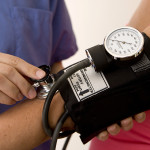By David Blyweiss, M.D., Advanced Natural Wellness
November 11, 2013
- What to expect after a stroke
- Gene mutation increases risk
- This high-fat diet can prevent disaster
The idea of experiencing a stroke is very scary. And it’s not just that a stroke can kill you. It’s that it might not. Instead, it could leave you unable to talk, walk or function.
If you or one of your loved ones has suffered a stroke, you know exactly what I’m talking about. It can take months or even years to recover.
In the meantime, it can be difficult to put words and sentences together. Your memory and thinking process might be muddled. And it’s not uncommon to experience paralysis or muscle weakness on one side of the body.
All of this can be very frustrating. So it’s important to get to the root of the problem before a stroke happens. This means taking care to improve the health of your circulatory system.
High blood pressure, plaque build-up and narrowing of the arteries all increase your risk of stroke.
That’s because your arteries and veins carry blood throughout your body. This blood flow delivers oxygen and nutrients to all of your cells and organs.
But when that blood flow is interrupted, it literally causes a “brain attack.” The oxygen supply to your brain is cut off. And this causes brain cells to die.
Open your arteries, improve blood flow for a new health miracle...
Did you know your circulatory system has over 60,000 miles of arteries, veins and other blood vessels, if stretched end to end?
But as you age, your blood vessels undergo changes, which may cause them to stiffen, thicken and get clogged.
GOOD NEWS! Doctors have now identified a “Miracle Molecule” inside your arteries that helps OPEN your arteries and IMPROVE blood flow.
It’s what Dr. Valentin Fuster calls it, "One of the most important discoveries in the history of cardiovascular medicine."To you, that means...
- Healthy blood pressure
- Sharper mind and memory
- Skyrocketing energy and muscular strength
- Increased pleasure and passion in the bedroom
- Improved circulation to every cell and organ in your body
Go here to discover a new natural way to significantly boost the levels of this miracle molecule in YOUR body NOW!
In an ischemic stroke, clots or obstructions block the arteries and cut off blood supply to the brain. This is the cause of about 87% of all strokes.
The other type of stroke is hemorrhagic. This type of stroke occurs when a weakened blood vessel ruptures and bleeds into the surrounding brain.
What saddens me as a physician is that many strokes are highly preventable. And it’s not hard to do.
Just take a look at this…
There is an eating plan that offsets all of the risk factors for stroke.
It improves circulation, lowers blood pressure, counters obesity and slashes diabetes to shreds. Just as importantly, it has years and years of proof and research backing it up.
I’m talking about the Mediterranean diet. And today, the news is better than ever before.
It turns out this type of eating plan can practically eliminate the risk of stroke simply by reducing the rate of diabetes.
Are You Suffering From...
- Love handles and a pot belly
- Romance that isn't what it used to
- Forgetfulness and inattention
- Low (or no) strength and endurance
- A sex drive that's shifted into neutral...or worse
If so...you may have Mature Male Burnout. Click here to discover more about this unique condition and what you can do about it.
Let me fill you in on how it works.
You may not realize it, but some people have a gene mutation that boosts their risk of type 2 diabetes. This, in turn, increases their chance of a stroke.
Now here’s the thing. Here in the U.S. we’re encouraged to eat foods low in fat. But if you have this mutation and eat foods that are low-fat, it could increase your risk of stroke by nearly three times.
However, if you choose a Mediterranean diet that is high in healthy fats, it can lower your stroke risk. In fact, it can put you at a level that’s almost equal to people without the mutation.
If you want to slash your risk of stroke, it’s pretty easy to do. Just eat like the Mediterranean’s.
Folks in the Mediterranean rely on olive oil for cooking and marinating. They eat plenty of nuts and seeds. Protein largely comes from steamed or baked fish that is rich in omega-3 fatty acids.
These foods are all loaded with fats that are good for your heart, blood pressure, blood sugar, cholesterol and brain.
As an added benefit, these people enjoy a wide variety of fresh fruits and vegetables as the mainstay of every meal.
I have to admit though. There are a few parts of the Mediterranean diet that don’t work in today’s world.
That’s why I generally suggest making a few modifications…
Today we’re hearing all sorts of great news about the Mediterranean diet. And that’s good because these foods are a natural part of the way we were intended to eat.
But the world is changing around us each and every day. As a result, some of today’s Westernized foods don’t quite hold up to Mediterranean standards.
With that being said, here are a few things to watch out for:
Wheat and grains. The Mediterranean Diet generally includes unrefined, unprocessed whole grains for bread and pasta. But today’s wheat is over-processed, over-refined and lacking nutritional value. Worse, its effect on our bodies is now toxic.
I recommend substituting with brown rice or quinoa pasta, and opting for heartier breads and grains.
Meat and Fish. A large portion of the protein found in the Mediterranean diet comes from fish. A much smaller portion comes from lamb, goats and chickens. Here in the States our fish is often farm-raised instead of wild-caught. And our meats and poultry are loaded with hormones and antibiotics. So how the fish and meat you include in your diet is cultivated matters. Organic, grass-fed, and wild caught are the all-important phrases to look for on labels.
Dairy. While yogurt, cheese and milk are all part of the Mediterranean diet, I still advocate leaving them off your plate. Nut milks, such as almond, are a healthy replacement. And coconut milk yogurt for sauces and spreads is another modification I would suggest.
Unrefined and Unprocessed. I’ve noticed many people who are trying to follow the Mediterranean Diet are still choosing foods that are processed and refined. Pasta and breads with refined flour. Using sweeteners with refined sugars. Choosing meats with nitrates. Keep in mind that the preparation methods are just as important as the ingredients themselves in this diet.
Mediterranean in Spirit, Local in Reality: Focus on eating vegetables that are local to you and in season… rather than on what grows in the Mediterranean.
Don’t let the high fat content in this style of eating scare you away. After all, these healthy fats may be the one thing that is standing between you and the disaster of experiencing a stroke.
Resources:
Corella D, et al. Mediterranean Diet Reduces the Adverse Effect of the TCF7L2-rs7903146 Polymorphism on Cardiovascular Risk Factors and Stroke Incidence: A randomized controlled trial in a high-cardiovascular-risk population. Diabetes Care. 2013 Sep 16. [Epub ahead of print]
Mediterranean Diet May Counter Genetic Risk of Stroke. HealthDay. Aug 2013.






